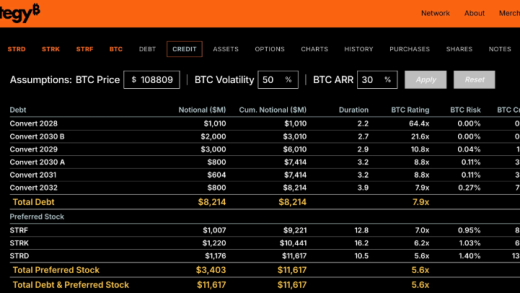I. Industry Risk Analysis
(I) Policy Risk
Currently, the rose essential oil industry faces risks at each stage of the policy life cycle: During the policy incubation period, the frequent adjustment of organic certification standards forces enterprises to continuously update their planting techniques. During the policy implementation stage, the inconsistent strictness of local environmental protection supervision leads to fluctuations in the compliance costs of production bases. In the policy recession period, there is a risk of a decline in agricultural subsidies, which directly affects the bargaining power for raw material procurement. The new cross – border e – commerce policy has tightened the review of import and export qualifications, hindering the overseas channel expansion of small and medium – sized manufacturers. The reform of the cosmetic raw material filing system is accelerating, and the extended application cycle for new active ingredients intensifies the sunk cost risk of R & D. The industry is in a sensitive period of policy adjustment.
(II) Economic Risk
The rose essential oil industry currently faces three economic pressures: large fluctuations in demand, rising raw material costs, and exchange rate risks. Against the backdrop of the global economic slowdown and the trend of consumption downgrading, the sluggish growth of the high – end skincare market directly affects the product premium space. Abnormal climates in major producing areas such as Bulgaria have led to a 35% increase in the purchase price of fresh roses in two years, squeezing profits. The depreciation of currencies in emerging markets (such as a 40% depreciation of the Turkish Lira within a year) has severely weakened export competitiveness. Entrepreneurs not only have to deal with the rigid increase in procurement costs of 36,000 – 42,000 yuan per kilogram at the raw material end but also face the risk of losing 28 – 32% of price – sensitive customers in the terminal market due to the decline in disposable income.
(III) Social Risk
Significant generational consumption differences have weakened the market stability of the rose essential oil industry. Generation Z pursues natural ingredients and personalized customization, forcing enterprises to upgrade their raw material traceability systems but significantly increasing costs. The silver – haired group has a path dependence on traditional efficacy – based products, resulting in a longer market acceptance cycle for innovative products. The consumption decisions of the middle – aged generation (35 – 55 years old) are significantly affected by economic fluctuations and are prone to reducing non – essential skincare expenses during an economic downturn. The fragmented preferences of different generations for marketing channels (short – video product placement, TV advertising, social fission) force enterprises to adopt a multi – channel placement strategy, resulting in the risk of resource dispersion. The generational gap in product perception is likely to trigger public disputes (such as young people questioning the effectiveness of traditional processes).
(IV) Legal Risk
Entrepreneurs need to focus on controlling the legality of the source of rose essential oil raw materials (to avoid disputes under the Wild Plant Protection Law caused by purchasing roses from illegal sources). In the production process, they must strictly implement the GB/T 26516 – 2011 standard (false ingredient labeling or illegal addition will trigger penalties under the Cosmetics Supervision and Administration Regulations). In marketing and publicity, medical terms should be avoided to evade liability under the Advertising Law. At the same time, they should prevent environmental protection lawsuits caused by sub – standard treatment of essential oil extraction wastewater and verify the use of trademarks and patents to avoid intellectual property infringement disputes.
II. Entrepreneurship Guide
(I) Suggestions on Entrepreneurship Opportunities
Currently, entrepreneurship opportunities in the rose essential oil industry are concentrated in the field of upgraded natural and healthy consumption. Three types of scenarios can be focused on:
1) The high – end skincare niche market: Launch precisely formulated products targeting the needs of sensitive skin repair and anti – aging, and establish professional trust through content marketing of aromatherapy knowledge.
2) The emotional value track: Develop portable fragrance derivatives with clear efficacy such as sleep – aid and stress – relief, and demonstrate usage scenarios through live – streaming e – commerce.
3) Integration of the local raw material supply chain: Leverage the resource advantages of production areas such as Yunnan and Gansu to create a traceable brand integrating planting and processing. At the same time, layout cross – border e – commerce channels to explore the natural beauty market in Europe and the United States, and focus on solving the core pain points of overseas consumers regarding organic certification and efficacy verification.
(II) Suggestions on Entrepreneurship Resources
Entrepreneurs in the rose essential oil industry should prioritize the integration of raw material supply resources. Sign long – term price – guaranteed procurement agreements with cooperatives in core production areas such as Yunnan and Bulgaria, and establish self – owned rose planting bases of over 10 mu. In terms of production technology, introduce supercritical CO2 extraction equipment to reduce energy consumption, and jointly develop micro – capsule slow – release technology with universities and research institutes. At the channel end, establish a light – asset model of “farmers + shared workshops + beauty ODM”, focus on connecting with product placement by Xiaohongshu influencers and co – branding channels with medical beauty institutions. Simultaneously, apply for special subsidies for deep processing of aromatic plants from the Ministry of Agriculture and Rural Affairs, obtain platform traffic support through the 1688 Industrial Belt Program, and use independent cross – border e – commerce websites to avoid international essential oil certification barriers.
(III) Suggestions on Entrepreneurship Teams
Entrepreneurs in the rose essential oil industry need to form a core team with expertise in phytochemistry, cosmetic regulations, and supply chain management. Priority should be given to recruiting members with aromatherapy certifications or experience in agricultural cooperatives. The technical leader must master key technologies such as supercritical CO2 extraction, and be paired with quality control personnel familiar with the EU ECOCERT organic certification process. The team must include cross – border e – commerce operation experts to handle both raw material import and finished product export. It is recommended to establish an on – site engineer mechanism in the raw material production areas to ensure the quality of fresh flower harvesting. Core members should sign partnership agreements including non – competition and formula confidentiality clauses, reserve a 15% equity pool to attract scarce talents such as perfumers, conduct monthly in – house training on the ISO 16128 international natural cosmetics standard, and bind technical backbones of contract manufacturers through virtual shareholding.
(IV) Suggestions on Entrepreneurship Risks
Entrepreneurs in the rose essential oil industry need to prioritize controlling the stability of the raw material supply chain. Sign long – term procurement agreements with high – quality rose planting bases and establish 2 – 3 alternative suppliers. In the production process, strictly follow the ISO 16128 natural cosmetics standard and GMP certification requirements. Raw material inspection reports and finished product efficacy reports should be updated and archived monthly. During market promotion, highlight national mandatory standards such as “Compliant with GB/T 26516 essential oils for cosmetics”, and avoid using prohibited promotional terms such as “medical – grade” and “therapeutic efficacy”. For online sales, complete cosmetic filing and cross – border e – commerce product compliance declarations. Implement a 90 – day rolling forecast mechanism for inventory management, maintain a 45 – day safety stock of core raw materials, reduce the risk of overstock through the pre – sale model, and prioritize expanding B – end professional channels such as beauty salons to reduce inventory pressure at the retail end.




